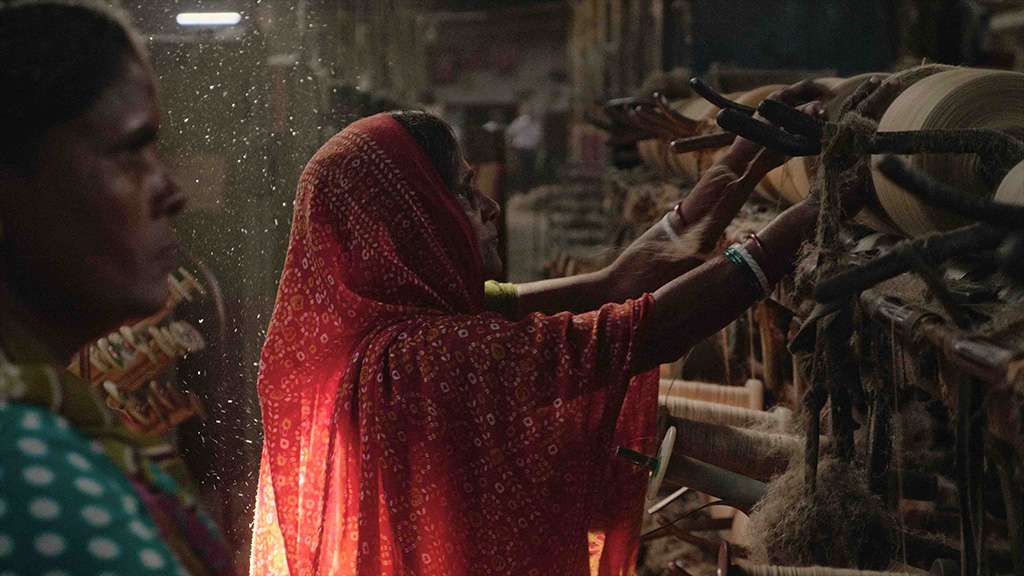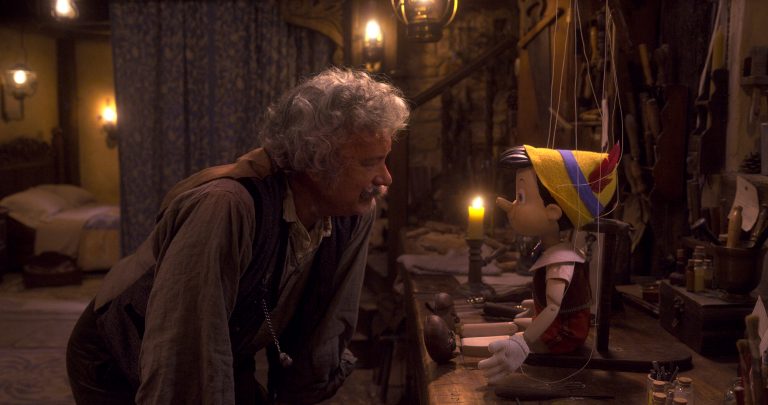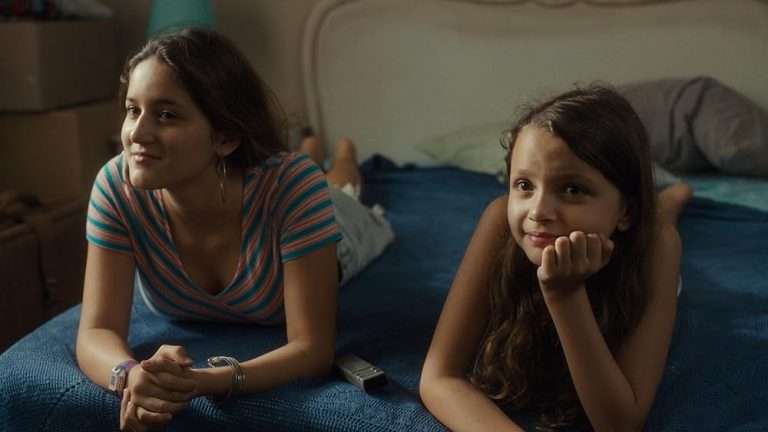The immediate thing Nishtha Jain’s documentary, The Golden Thread, gets honed perfectly is texture, making us intimately familiar with its very tangibility. Be it its surface or the location where it goes through the various processes of transformation to the final stage, the material itself receives the care and attention of Jain’s loving gaze. The director brings rigor and a minute eye to the intensive procedures through which jute, hailed as the “fabric of the future,” is spun from its bare kernel, encompassing its passing down through the many stakeholders and craftsmen.
Circling the two long-standing jute establishments in Bengal’s districts, Wellington Mills and Hukumchand Mills, the film doesn’t particularly dwell on the specificity of their situation, instead clumps the two together in stabbing through the larger imagination, utility, and great economic churn around them. Jain deploys an observant lens that constantly keeps the viewer situated amidst the grind and grime of the factories. Whenever Rakesh Haridas’s camera departs from these grounds, the film tries to glance into the personal journeys of the workers.
This approach isn’t exactly innovative or inspired. The female workers finish their cooking and leave for the factories by dawn, taking the jetty and traveling long distances. They concede the varied gendered implications of their work. They are aware the factory extracts more from them than their male counterparts, who would take intermittent smoking breaks or away time every now and then.
“We stay put,” one of them says, laughing. As much as they accept the toll it takes, one of them mentioning how the work does almost leach their beauty off in their draining excess, whittling away any ambition, they admit it is relatively better than other companies that fire people at the tiniest of slip-ups. Jain traces the mills as entities under severe threat of erasure and precarity, its big, old, looming machinery teetering close to disrepair and its workers imperiled by the rise of new technologies that can handle and deliver the greater scale of production. Then there’s also the sense of the generational the film ranges through as it swoops over the workers across the age bracket.
Large numbers of people depend on the mill for their sustenance; their existence is deeply enmeshed with it. The working circumstances are never ideal. It is backbreaking work; an old man, who also dabbles as an astrologer, remarks he has to smoke up to endure the work required, lugging a mass of jute balls. The young are also trapped in this cycle of work. To dream bigger and get into higher studies, finance is needed; one of the boys who slogs away at the mill encapsulates it bluntly. The aspirational space for jobs itself narrows down.

Even the pay, once higher than that of a government job, has gradually turned measly, the demand for minimum wage rarely materializes into reality. In a memorable flash of insight, someone quips how there is a higher frequency of accidents at the mill near the month’s end when most of the salary has dried up, and the stress is higher than ever. The mortality rate induced by the work is so steep that retired employees sometimes even die before getting their dues that take years to reach them. There are no benefits either for senior employees.
However, the manner in which the film doles out all of this commentary is so wholly pedestrian it sits awkwardly at a disjunction from the work that’s depicted in all its progression. The filmmaking voice seems distended, placed at an impassive distance from the terrain and the characters who let us into their beady-eyed dreams and glimpses of other lives that they might have actually wanted. The Golden Thread is peculiarly bereft of any human frisson, any anger, politics, sadness, or yearning quelled to make room for stilted shards of characters and space.
The documentary seeks to ask questions, but the interrogation lacks both personality and intelligence, veering close to an aestheticized but listless series of tableaux. What strikes the viewer is rather the shimmers that bounce off the jute in the sunlight, rarely affording any nuanced understanding of the people endlessly weaving and spinning.





![The Eagle Huntress [2016] – A Feel-Good Documentary Led by an Incredibly Charismatic Girl](https://79468c92.delivery.rocketcdn.me/wp-content/uploads/2017/05/cover-768x432.jpg)


